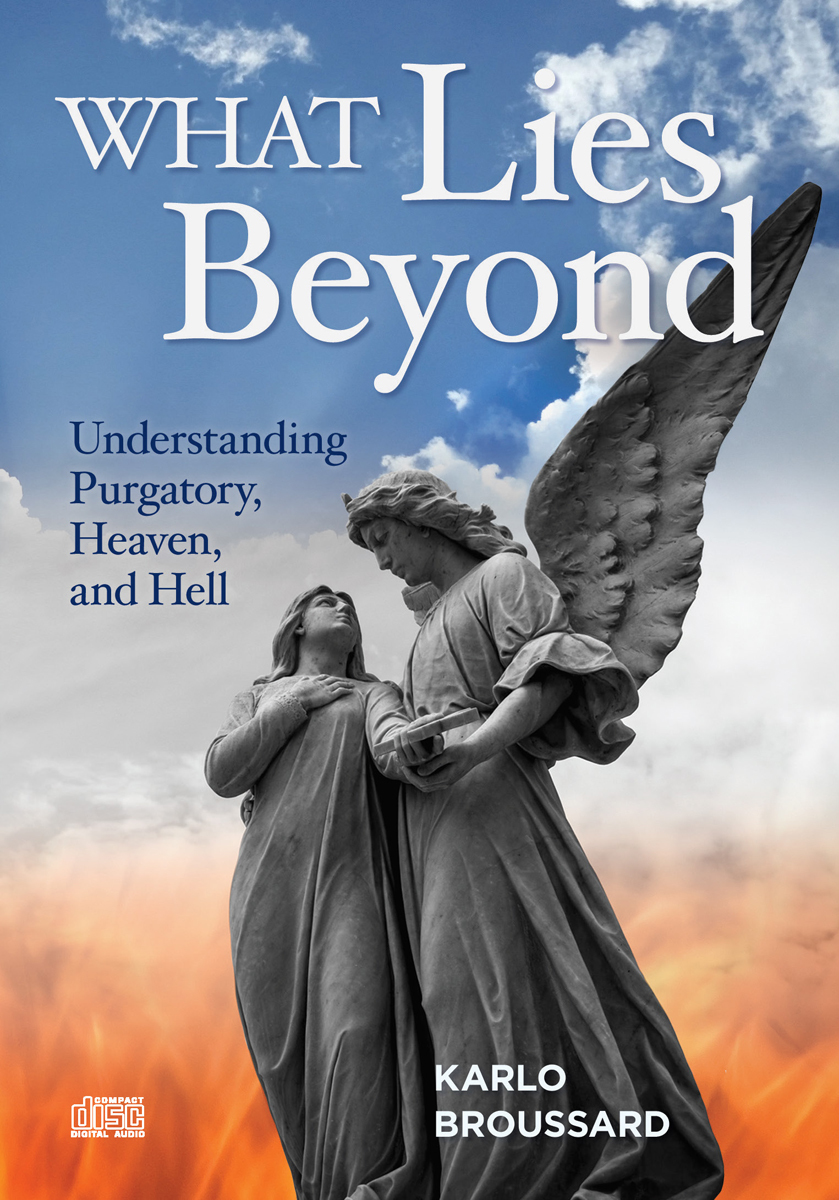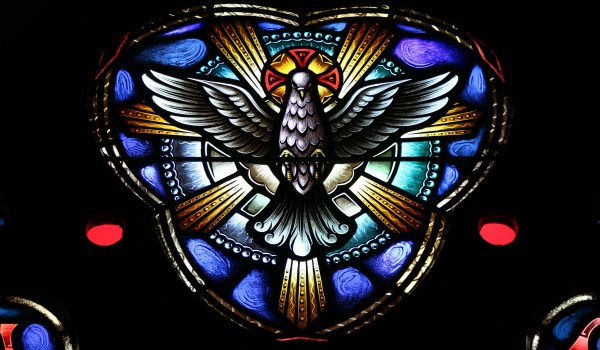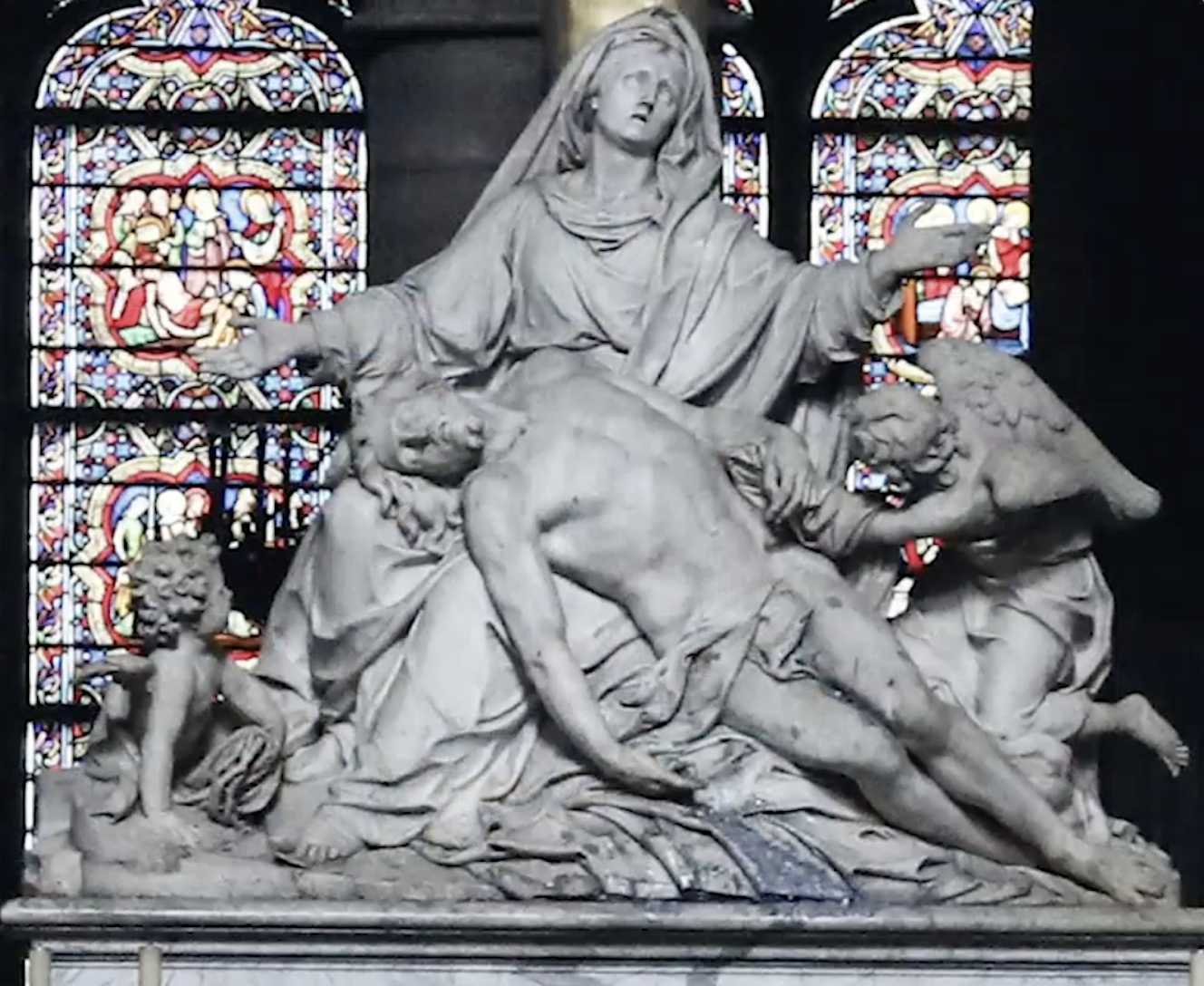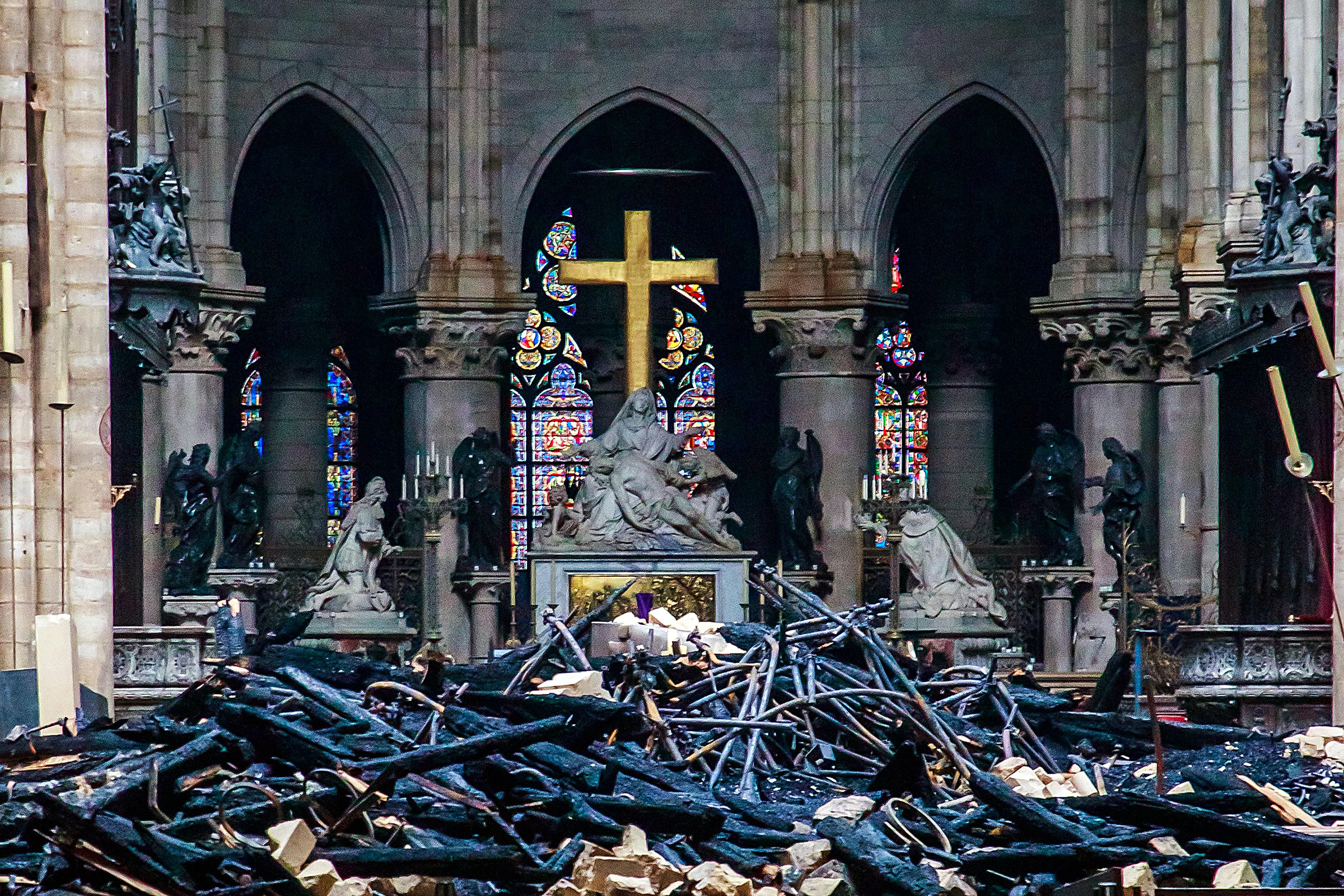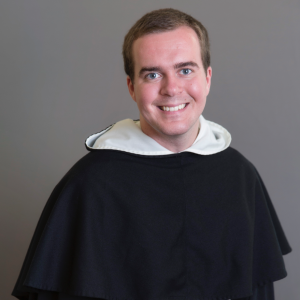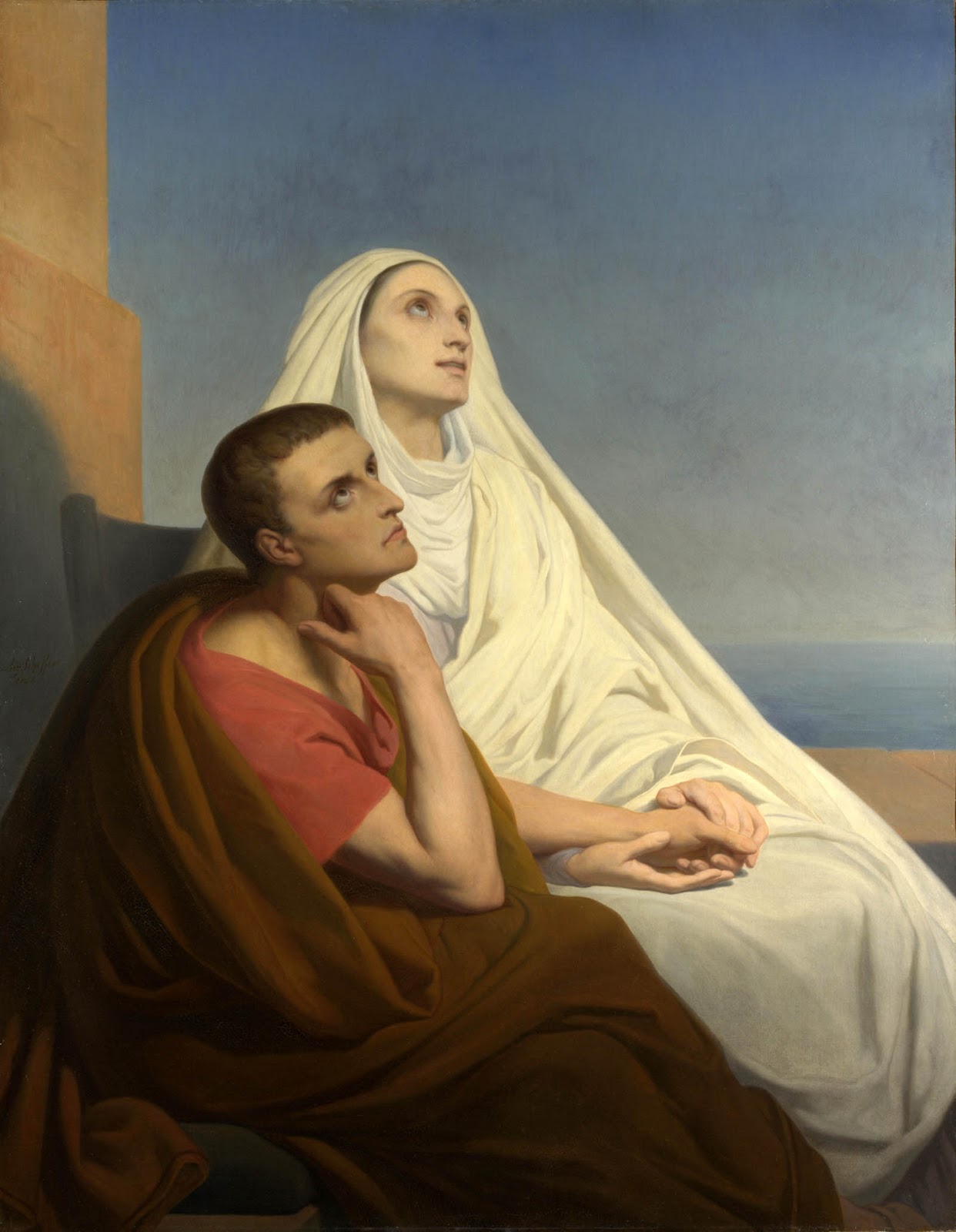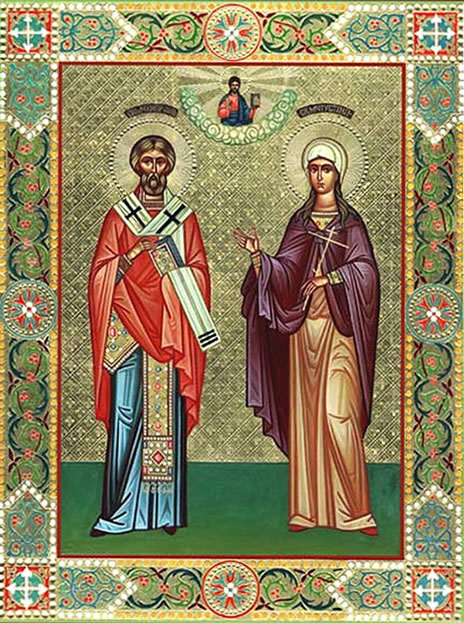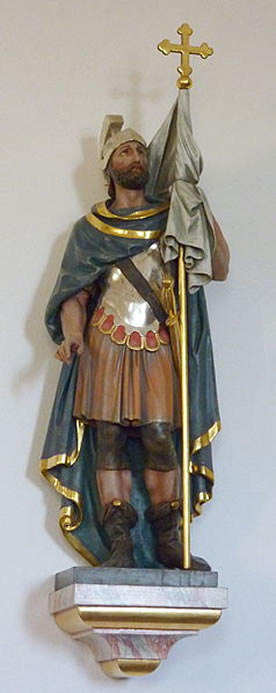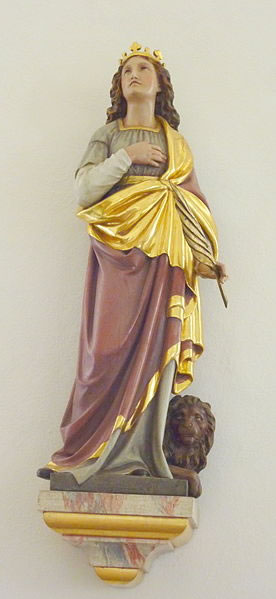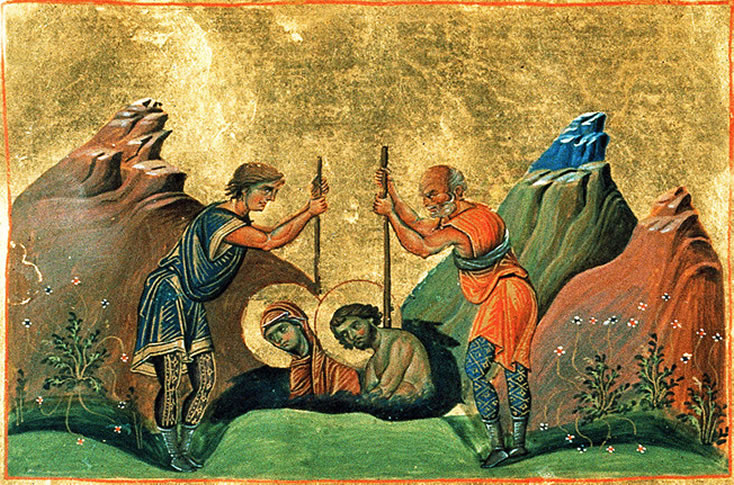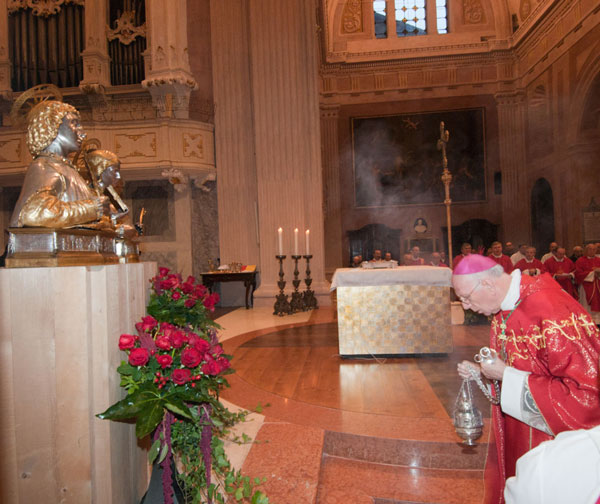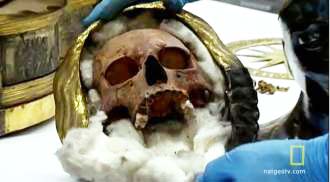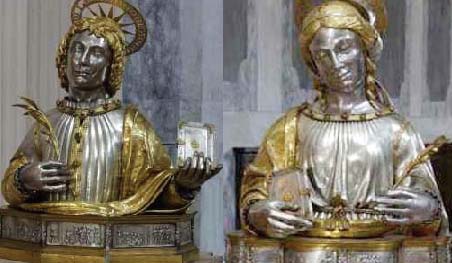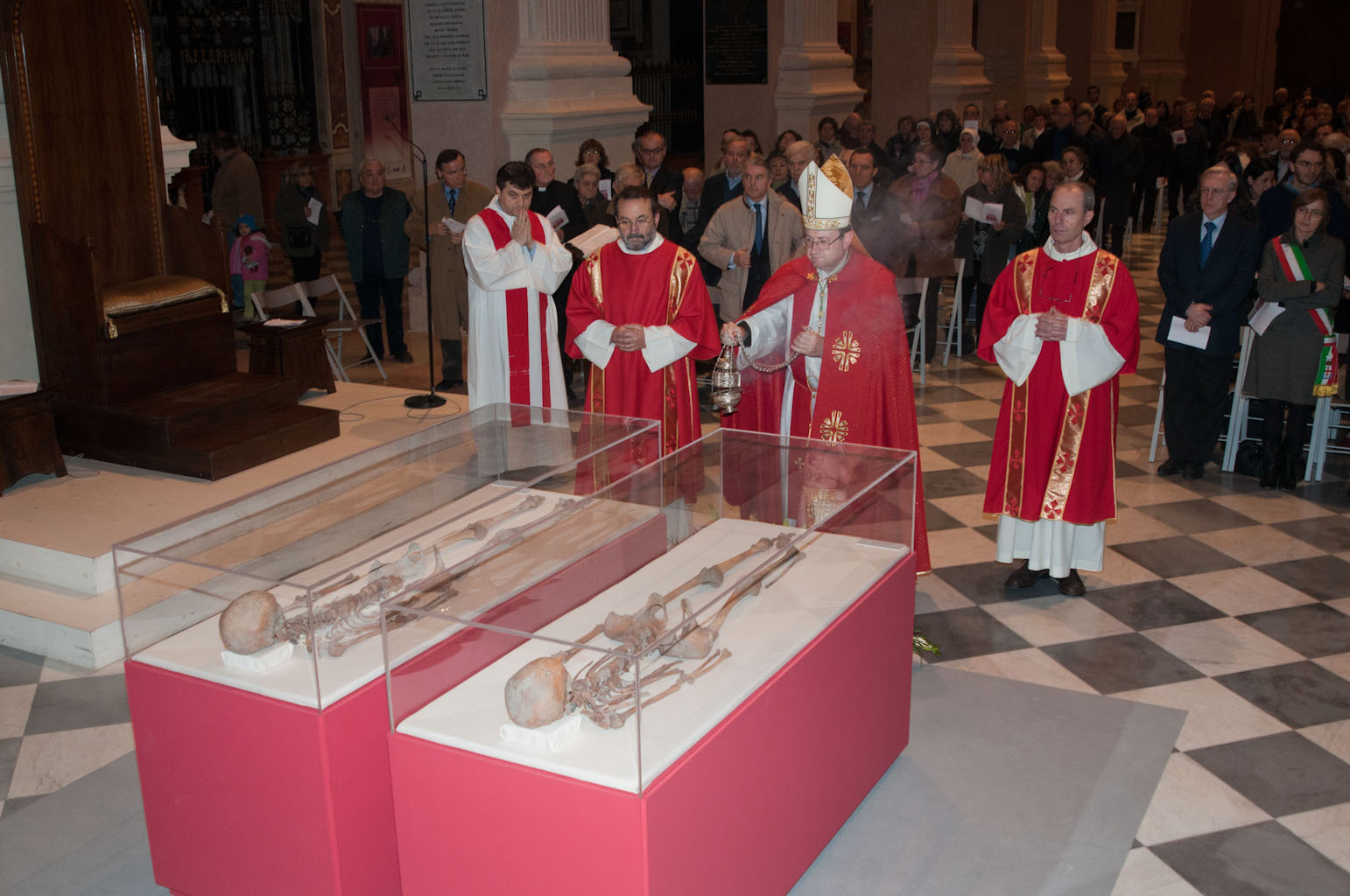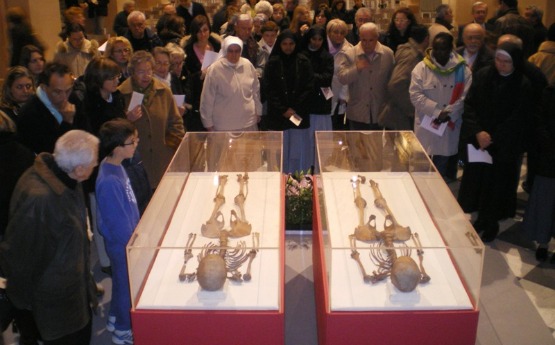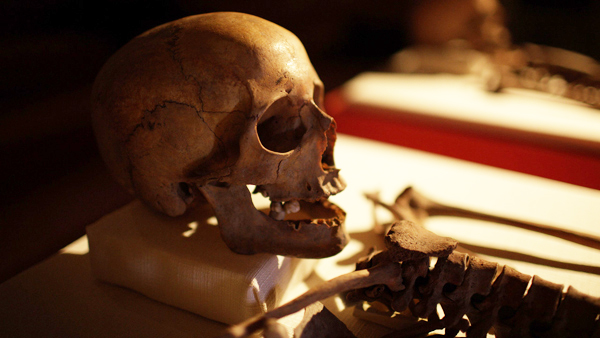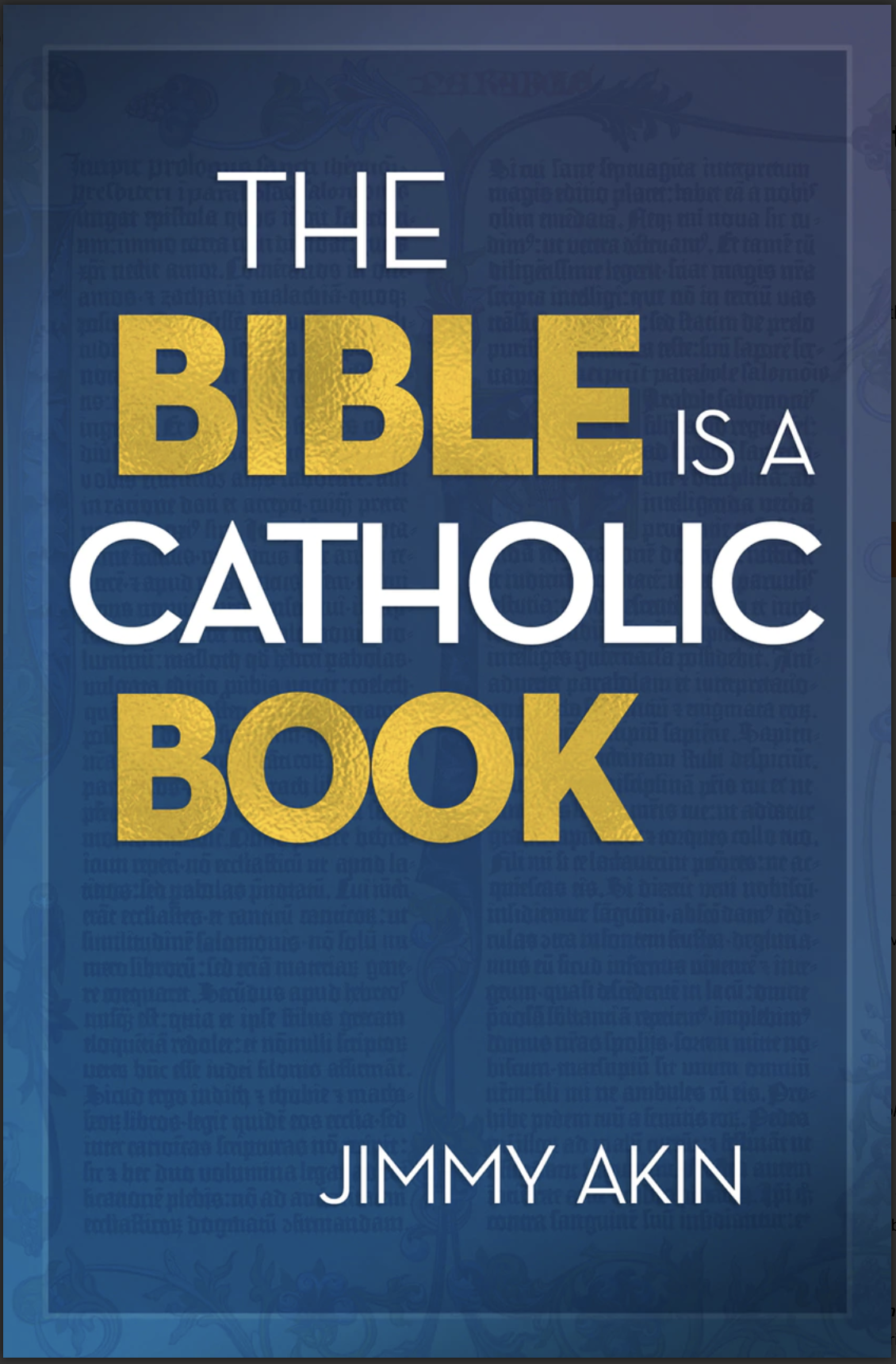
“In the beginning was the Word, and the Word was with God, and the Word was God.” -Jn 1:1 The Word of God, Jesus, as God, has no beginning. Time does. God doesn’t, being uncreated, but rather the source of all creation. So, the Word of God, logos, existed before the Bible. The 46 books of the Old Testament and the 27 books of the New Testament were determined as canonical by the Councils of Hippo (393 AD) and Carthage (397, 419 AD).
According to St Irenaeus of Lyon (c 130-202) a student of St John the Apostle’s disciple St Polycarp (c pre-69-156), John the Apostle wrote these words specifically to refute the teachings of Cerinthus,[1] who both resided and taught at Ephesus, the city John settled in following his return from exile on Patmos.[2] Cerinthus believed that the world was created by a power far removed from and ignorant of the Father, and that the Christ descended upon the man Jesus at his baptism, and that strict adherence to the Mosaic Law was absolutely necessary for salvation. Therefore, Irenaeus writes,
“The disciple of the Lord therefore desiring to put an end to all such doctrines, and to establish the rule of truth in the Church, that there is one Almighty God, Who made all things by His Word, both visible and invisible; showing at the same time, that by the Word, through Whom God made the creation, He also bestowed salvation on the men included in the creation; thus commenced His teaching in the Gospel: “In the beginning was the Word, and the Word was with God, and the Word was God. The same was in the beginning with God. All things were made by Him, and without Him was nothing made. What was made was life in Him, and the life was the light of men. And the light shines in darkness, and the darkness comprehended it not.””[3]
To the rabbis who spoke of the Torah (Law) as preexistent, as God’s instrument in creation, and as the source of light and life, John replied that these claims apply rather to the Logos.
Ignatius of Antioch
The first extant Christian reference to the Logos found in writings outside of the Johannine corpus belongs to John’s disciple Ignatius (c 35-108), Bishop of Antioch, who in his epistle to the Magnesians, writes, “there is one God, Who has manifested Himself by Jesus Christ His Son, Who is His eternal Word, not proceeding forth from silence,”[4] (i.e., there was not a time when He did not exist). In similar fashion, he speaks to the Ephesians of the Son as “both made and not made; God existing in flesh; true life in death; both of Mary and of God; first passible and then impassible”.[5]
Justin Martyr
Following John 1, the early Christian apologist Justin Martyr (c 150) identifies Jesus as the Logos.[6][7] Like Philo, Justin also identified the Logos with the Angel of the LORD, and he also identified the Logos with the many other Theophanies of the Old Testament, and used this as a way of arguing for Christianity to Jews:
“I shall give you another testimony, my friends, from the Scriptures, that God begot before all creatures a Beginning, [who was] a certain rational power [proceeding] from Himself, Who is called by the Holy Spirit, now the Glory of the Lord, now the Son, again Wisdom, again an Angel, then God, and then Lord and Logos;”[8]
In his Dialogue with Trypho, Justin relates how Christians maintain that the Logos,
“…is indivisible and inseparable from the Father, just as they say that the light of the sun on earth is indivisible and inseparable from the sun in the heavens; as when it sinks, the light sinks along with it; so the Father, when He chooses, say they, causes His power to spring forth, and when He chooses, He makes it return to Himself . . . And that this power which the prophetic word calls God . . . is not numbered [as different] in name only like the light of the sun but is indeed something numerically distinct, I have discussed briefly in what has gone before; when I asserted that this power was begotten from the Father, by His power and will, but not by abscission, as if the essence of the Father were divided; as all other things partitioned and divided are not the same after as before they were divided: and, for the sake of example, I took the case of fires kindled from a fire, which we see to be distinct from it, and yet that from which many can be kindled is by no means made less, but remains the same.”[9]
In his First Apology, Justin used the Stoic concept of the Logos to his advantage as a way of arguing for Christianity to non-Jews. Since a Greek audience would accept this concept, his argument could concentrate on identifying this Logos with Jesus.[6]
Theophilus of Antioch
Theophilus, the Patriarch of Antioch, (died c 180 AD) likewise, in his Apology to Autolycus, identifies the Logos as the Son of God, Who was at one time internal within the Father, but was begotten by the Father before creation:
“And first, they taught us with one consent that God made all things out of nothing; for nothing was coeval with God: but He being His own place, and wanting nothing, and existing before the ages, willed to make man by whom He might be known; for him, therefore, He prepared the world. For he that is created is also needy; but He that is uncreated stands in need of nothing. God, then, having His own Word internal within His own bowels, begot Him, emitting Him along with His own wisdom before all things. He had this Word as a helper in the things that were created by Him, and by Him He made all things . . . Not as the poets and writers of myths talk of the sons of gods begotten from intercourse [with women], but as truth expounds, the Word, that always exists, residing within the heart of God. For before anything came into being He had Him as a counsellor, being His own mind and thought. But when God wished to make all that He determined on, He begot this Word, uttered, the first-born of all creation, not Himself being emptied of the Word [Reason], but having begotten Reason, and always conversing with His Reason.”[10]
He sees in the text of Psalm 33:6 the operation of the Trinity, following the early practice as identifying the Holy Spirit as the Wisdom (Sophia) of God,[11] when he writes that “God by His own Word and Wisdom made all things; for by His Word were the heavens made, and all the host of them by the Spirit of His mouth”[12] So he expresses in his second letter to Autolycus, “In like manner also the three days which were before the luminaries, are types of the Trinity, of God, and His Word, and His wisdom.”[13]
Athenagoras of Athens
By the third quarter of the second century, persecution had been waged against Christianity in many forms. Because of their denial of the Roman gods, and their refusal to participate in sacrifices of the Imperial cult, Christians were suffering persecution as “atheists.”[14] Therefore the early Christian apologist Athenagoras (c 133 – c 190 AD), in his Embassy or Plea to the Emperors Marcus Aurelius and his son Commodus on behalf of Christianity (c 176), makes defense by an expression of the Christian faith against this claim. As a part of this defense, he articulates the doctrine of the Logos, expressing the paradox of the Logos being both “the Son of God” as well as “God the Son,” and of the Logos being both the Son of the Father as well as being one with the Father,[15] saying,
“Who, then, would not be astonished to hear men called atheists who speak of God the Father, and of God the Son, and of the Holy Spirit, and who declare both their power in union and their distinction in order? . . . the Son of God is the Word [Logos] of the Father, in idea and in operation; for after the pattern of Him and by Him were all things made, the Father and the Son being one. And, the Son being in the Father and the Father in the Son, in oneness and power of spirit, the understanding [Nous] and reason [Logos] of the Father is the Son of God. But if, in your surpassing intelligence, it occurs to you to inquire what is meant by the Son, I will state briefly that He is the first product of the Father, not as having been brought into existence (for from the beginning, God, who is the eternal mind [Nous], had the Word in Himself, being from eternity rational [Logikos]; but inasmuch as He came forth to be the idea and energizing power of all material things, which lay like a nature without attributes, and an inactive earth, the grosser particles being mixed up with the lighter…)”[16]
Athenagoras further appeals to the joint rule of the Roman Emperor with his son Commodus, as an illustration of the Father and the Word, his Son, to whom he maintains all things are subjected, saying,
“For as all things are subservient to you, father and son, who have received the kingdom from above (for “the king’s soul is in the hand of God,” says the prophetic Spirit), so to the one God and the Word proceeding from Him, the Son, apprehended by us as inseparable from Him, all things are in like manner subjected.”[17]
In this defense he uses terminology common with the philosophies of his day (Nous, Logos, Logikos, Sophia) as a means of making the Christian doctrine relatable to the philosophies of his day.
Irenaeus of Lyon
Irenaeus (c 130-202), a student of the Apostle John’s disciple, Polycarp, identifies the Logos as Jesus, by whom all things were made,[18] and who before his incarnation appeared to men in the Theophany, conversing with the ante-Mosaic Patriarchs,[19] with Moses at the burning bush,[20] with Abraham at Mamre,[21] et al.,[22] manifesting to them the unseen things of the Father.[23] After these things, the Logos became man and suffered the death of the cross.[24] In his Demonstration of the Apostolic Preaching, Irenaeus defines the second point of the faith, after the Father, as this:
The Word of God, Son of God, Christ Jesus our Lord, who was manifested to the prophets according to the form of their prophesying and according to the method of the dispensation of the Father: through whom all things were made; who also at the end of the times, to complete and gather up all things, was made man among men, visible and tangible, in order to abolish death and show forth life and produce a community of union between God and man.[25]
Irenaeus writes that Logos is and always has been the Son, is uncreated, eternally-coexistent [26] and one with the Father,[27][28][18][29] to whom the Father spoke at creation saying, “Let us make man.”[30] As such, he distinguishes between creature and Creator, so that,
He indeed who made all things can alone, together with His Word, properly be termed God and Lord: but the things which have been made cannot have this term applied to them, neither should they justly assume that appellation which belongs to the Creator [31]
Again, in his fourth book against heresies, after identifying Christ as the Word, who spoke to Moses at the burning bush, he writes, “Christ Himself, therefore, together with the Father, is the God of the living, who spoke to Moses, and who was manifested to the fathers.” [32]
———-
On April 1, 2005, Joseph Cardinal Ratzinger (who became Pope Benedict XVI just over two weeks later) referred to the Christian religion as the religion of the Logos:
“Christianity must always remember that it is the religion of the “Logos.” It is faith in the “Creator Spiritus,” (Creator Spirit), from which proceeds everything that exists. Today, this should be precisely its philosophical strength, in so far as the problem is whether the world comes from the irrational, and reason is not, therefore, other than a “sub-product,” on occasion even harmful of its development or whether the world comes from reason, and is, as a consequence, its criterion and goal. The Christian faith inclines toward this second thesis, thus having, from the purely philosophical point of view, really good cards to play, despite the fact that many today consider only the first thesis as the only modern and rational one par excellence. However, a reason that springs from the irrational, and that is, in the final analysis, itself irrational, does not constitute a solution for our problems. Only creative reason, which in the crucified God is manifested as love, can really show us the way. In the so necessary dialogue between secularists and Catholics, we Christians must be very careful to remain faithful to this fundamental line: to live a faith that comes from the “Logos,” from creative reason, and that, because of this, is also open to all that is truly rational.”[33]
Catholics can use Logos to refer to the moral law written in human hearts. This comes from Jeremiah 31:33 (prophecy of new covenant): “I will write my law on their hearts.” St. Justin wrote that those who have not accepted Christ but follow the moral law of their hearts (Logos) follow God, because it is God who has written the moral law in each person’s heart. Though man may not explicitly recognize God, he has the spirit of Christ if he follows Jesus’ moral laws, written in his heart. (Actions, do speak louder than words.)

-by Jimmy Akin, a former Presbyterian, Jimmy is a convert to the Faith and has an extensive background in the Bible, theology, the Church Fathers, philosophy, canon law, and liturgy.
“How the world began is a question people everywhere ask. It’s a human universal.
Pagan cultures thought the world was made by their gods and goddesses. Some myths claimed that the gods reproduced sexually to make the elements of the world. Others held that there was a fierce battle among the gods, and the world was formed from the corpses of the losers. Mankind was then created as a slave race to relieve the gods of drudgery.
The book of Genesis set the record straight: The world was not produced by a multitude of finite gods. It was the creation of a single, great God—one supreme and supremely good Being Who is behind everything.
Because of His infinite, unlimited power, He didn’t need to use anything to make the world, as the pagans thought. He didn’t need to mate with a goddess. He didn’t need to battle other gods and make the world from their corpses. He simply spoke, and the elements of the world sprang into existence: “God said, ‘Let there be light’; and there was light” (Gen. 1:3).”
That is the difference between our words and God’s words. When God speaks, it immediately comes to pass. It is. It happens. Everything Jesus said immediately happened. I suppose there is humor in that most august awareness. Aren’t we glad that doesn’t happen for us?
“Because Jesus was there in the beginning—one of the uncreated, divine Persons of the Trinity—He is the original and supreme Word of God. All of God’s other words are shadows of Him.
This is important to remember, because some today use the phrase “word of God” as if it just meant “the Bible.”
Although the Bible is important, the word of God is not confined to or only found in it. First and foremost, Jesus Christ Himself is the Word of God, and there are other expressions of it, only some of which are found in Scripture.”
———-
Interestingly, Catholics refer to the Word of God as both Scripture and tradition (the lived experience of the Church over two thousand years). The Jewish tradition, six thousand years, has always had a written canonical (Hebrew Scriptures) and a written, but non-canonical, understanding of God’s will, such as above and elsewhere in the Catholic tradition, the writing of saints, Fathers of the Church, Doctors of the Church, etc. It is VERY important, and sadly non-self-evident, to understand the importance in the Catholic hierarchy of revelation. The Bible and the written non-canonical part, known as tradition, and too numerous to name, should come with a score 0-10. They do not. The Bible and tradition, as the Church defines it, is a ten. Other things, 9-0. It is only with the Protestant Reformation that even the suggestion that an oral (which can be
“Wherefore, by divine and Catholic faith all those things are to be believed which are [a] contained in the word of God as found in Scripture and tradition” [Dei Filius 3:8]
And, in Canon Law,
Can. 750 §1. “A person must believe with divine and Catholic faith all those things [a] contained in the word of God, written or handed on, that is, in the one deposit of faith entrusted to the Church”
Love,
Matthew
1. Irenaeus. Against Heresies, 3.11
2. Irenaeus, Against Heresies, 3.3.4
3. Irenaeus, Against Heresies, 3.11.1
4. Ignatius of Antioch, Epistle to the Magnesians, 8
5. Ignatius of Antioch. Epistle to the Ephesians, 7
6. Erwin R. Goodenough, The Theology of Justin Martyr, 1923 (reprint on demand BiblioBazaar, LLC, pp. 139–175. ISBN 1-113-91427-0)
7. Jules Lebreton, 1910 Catholic Encyclopedia: St. Justin Martyr.
8. Justin Martyr, Dialogue with Trypho, Chapter 61.
9. Justin Martyr, Dialogue With Trypho, 128, 129
10. Theophilus of Antioch, To Autolycus, 2.10, 22
11. His contemporary, Irenaeus of Lyon, citing this same passage, writes, “By the word of the Lord were the heavens established, and by his spirit all their power. Since then the Word establishes, that is to say, gives body and grants the reality of being, and the Spirit gives order and form to the diversity of the powers; rightly and fittingly is the Word called the Son, and the Spirit the Wisdom of God.” (Demonstration of the Apostolic Preaching, 5). This is in contrast with later Christian writings, where “Wisdom” came to be more prominently identified as the Son.
12. Theophilus of Antioch, To Autolycus, 1.7
13. Theophilus of Antioch, To Autolycus, 2.15
14. Athenagoras, Plea For the Christians, 4
15. See also Plea, 24: “For, as we acknowledge God, and the Logos his Son, and a Holy Spirit, united in power—the Father, the Son, the Spirit, because the Son is the Intelligence [Nous], Word [Logos], Wisdom [Sophia] of the Father, and the Spirit an effluence, as light from a fire.” Adapted from the translation of B.P. Pratten, Ante-Nicene Fathers, Vol. 2, being corrected according to the original Greek.
16. Athenagoras, Plea for the Christians, 10
17. Athenagoras, Plea for the Christians, 18
18. Irenaeus, Against Heresies, 3.8.3
19. Irenaeus, Against Heresies, 3.11.8, “And the Word of God Himself used to converse with the ante-Mosaic patriarchs, in accordance with His divinity and glory . . . Afterwards, being made man for us, He sent the gift of the celestial Spirit over all the earth, protecting us with His wings”
20. Irenaeus, Demonstration of the Apostolic Preaching, 2
21. Irenaeus, Against Heresies, 3.6.1
22. Irenaeus, Demonstration of the Apostolic Preaching, 43-47
23. Irenaeus, Against Heresies, 2.30.9
24. Irenaeus, Demonstration of the Apostolic Preaching, 53
25. Irenaeus, Demonstration of the Apostolic Preaching, 6
26. Irenaeus, Against Heresies, 2.30.9. (see also, 2.25.3; 4.6.2) “He is the Father of our Lord Jesus Christ: through His Word, who is His Son, through Him He is revealed and manifested to all to whom He is revealed; for those [only] know Him to whom the Son has revealed Him. But the Son, eternally co-existing with the Father, from of old, yea, from the beginning, always reveals the Father to Angels, Archangels, Powers, Virtues, and all to whom He wills that God should be revealed.”
27. Irenaeus, Demonstration of the Apostolic Preaching, 45-47
28. Irenaeus, Against Heresies, 4.5.2
29. Irenaeus, Against Heresies, 5.22.1, “But the Word of God is the superior above all, He who is loudly proclaimed in the law: ‘Hear, O Israel, the Lord your God is one God'”
30. Irenaeus, Demonstration of the Apostolic Preaching, 55
31. Irenaeus, Against Heresies, 3.8.3
32. Irenaeus, Against Heresies, 4.5.2
33. Cardinal Ratzinger on Europe’s crisis of culture, retrieved from Catholiceducation.org





